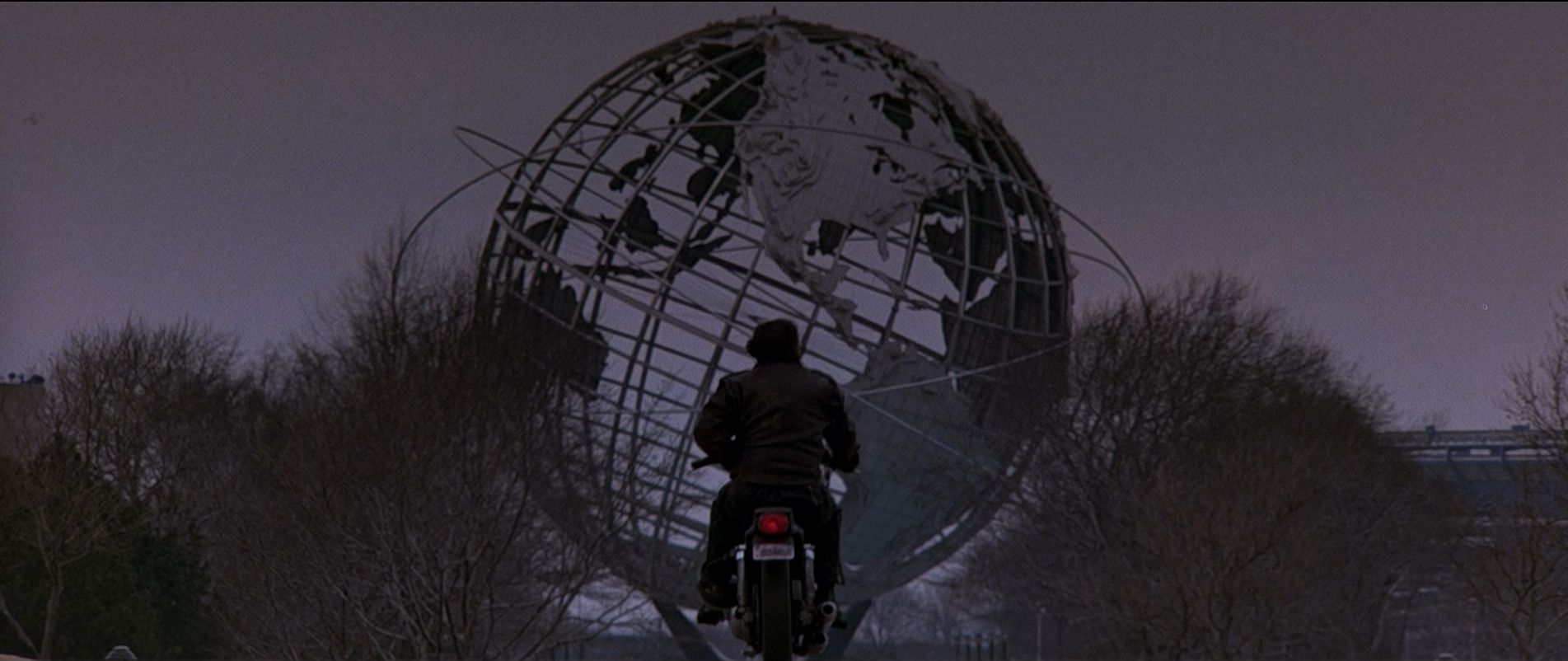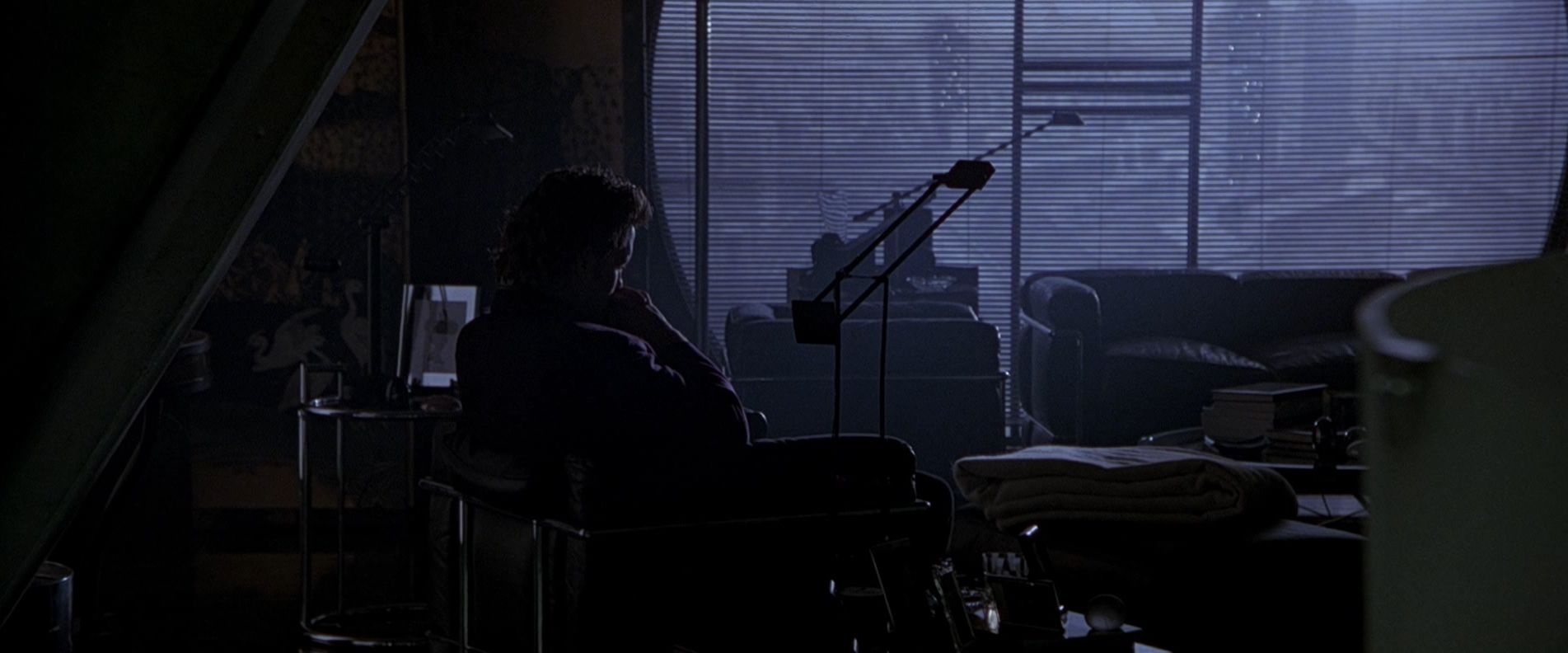
5 Ridley Scott movies to see before The Martian
 Some of you have probably heard the news: There's a new Ridley Scott movie headed to theaters. So, now would be the time to meticulously comb through Scott's vast and varied back catalog to highlight those hidden away gems you may have missed along the way. After winning an award at Cannes for his first film The Duelists, Scott has gone on to direct 23 films, ranging from buddy movies to period epics to spine-tingling science fictioneers. The five movies I've selected may not be his most popular (I assume we've all seen Alien and Blade Runner by this point), but they do procure those same thrills, and in some cases, surpass the quality of Scott's most populous work. Let's begin at the top, shall we?
Some of you have probably heard the news: There's a new Ridley Scott movie headed to theaters. So, now would be the time to meticulously comb through Scott's vast and varied back catalog to highlight those hidden away gems you may have missed along the way. After winning an award at Cannes for his first film The Duelists, Scott has gone on to direct 23 films, ranging from buddy movies to period epics to spine-tingling science fictioneers. The five movies I've selected may not be his most popular (I assume we've all seen Alien and Blade Runner by this point), but they do procure those same thrills, and in some cases, surpass the quality of Scott's most populous work. Let's begin at the top, shall we?
5. The Duelists (1977)
Ridley's first film, and certainly, among the more interesting in his filmography, won him the Best Debut Film award at Cannes, along with the freedom to make his next picture (A little movie by the name of Alien). But first, The Duelists, based on a Joseph Conrad short story (Point of Honor), concerns a pair of quarreling Napoleonic officers who engage themselves in a decades long duel, but through Hemingway-like circumstances, never manage to finish what they've started.
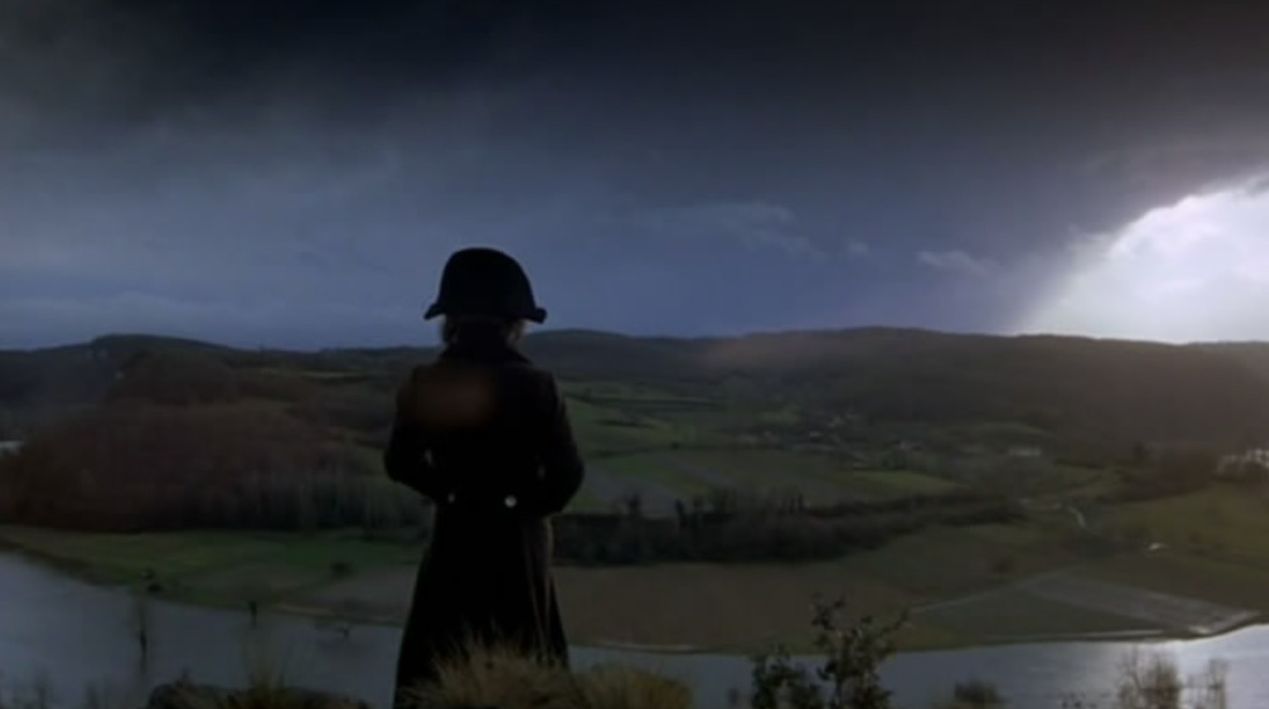
While the movie has drawn comparisons to Stanley Kubrick's Barry Lyndon , it shares a similarly odd sense of humor with the Best Picture winner of 1964, Tony Richardson's Tom Jones. Beautifully shot, if emotionally vacant at times, Scott's grim anti-war sentiment of the misuse of honor and justice is a visual feast, while maintaining the slightest hint of didactic alienation amongst its viewers. Not Ridley's best film, but an undoubtedly mature first feature, and one that would (already) begin to reinforce his ability to craft impeccable images on big and small canvases.
4. G.I. Jane (1997)
Coming only a year after Michael Bay's The Rock, G.I. Jane feels and looks similarly to what has become the Bay aesthetic. But thankfully, much like The Rock, Jane happens to be an exceedingly entertaining movie, despite Demi Moore's Razzie Award Winning performance as the film's protagonist. G.I. Jane concerns the first (fictional) female to participate in U.S. Navy Special Warfare Group. After being hand chosen by a Texas senator regarding the lack of gender-neutral recruits, in what is essentially an United States Navy Seal program, topographical analyst Jordan suffers through a hellish training regimen designed to break recruits.
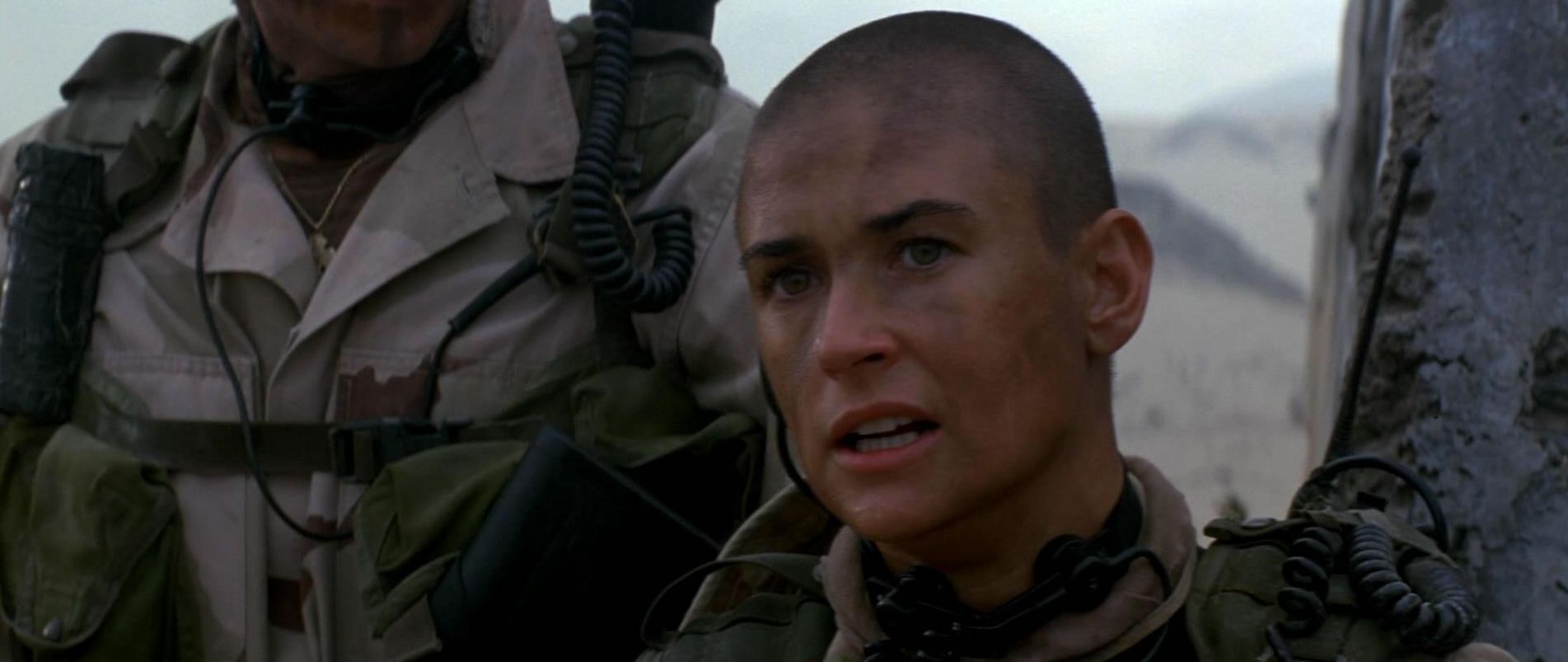
Moore may have won the Razzie award in 1997 for her performance as the female recruit, but it's a little hard to fathom why, exactly. There's a fearlessness to Moore that she's shown us in bits and pieces before, but never like this. She doesn't look like your normal Navy recruit, and this is undoubtedly in service of the point Scott is attempting to make. Having her femininity being called into question, in multitudes of ways, (one particular scene involving the shaving of a head), is all in service of female empowerment. Her male counterparts (even her husband), question whether or not Jordan can sustain the same levels of hellish endurance her male companions can, all the while, attempting to retain a piece of femininity amongst her burdened, testosterone-fueled barracks.
3. Matchstick men (2003)
Nicholas Cage and Alison Lohman star in this con-man (woman?) movie about a severely Obsessively-Compulsive Cage, attempting to rebuild his relationship with his long estranged daughter. All the while the two bond, Cage's protege Frank set his sights on what is to be their next job, an arrogant business man named Chuck. But, as is the case with everything in Cage's life, the people around him may not be exactly as they seem.
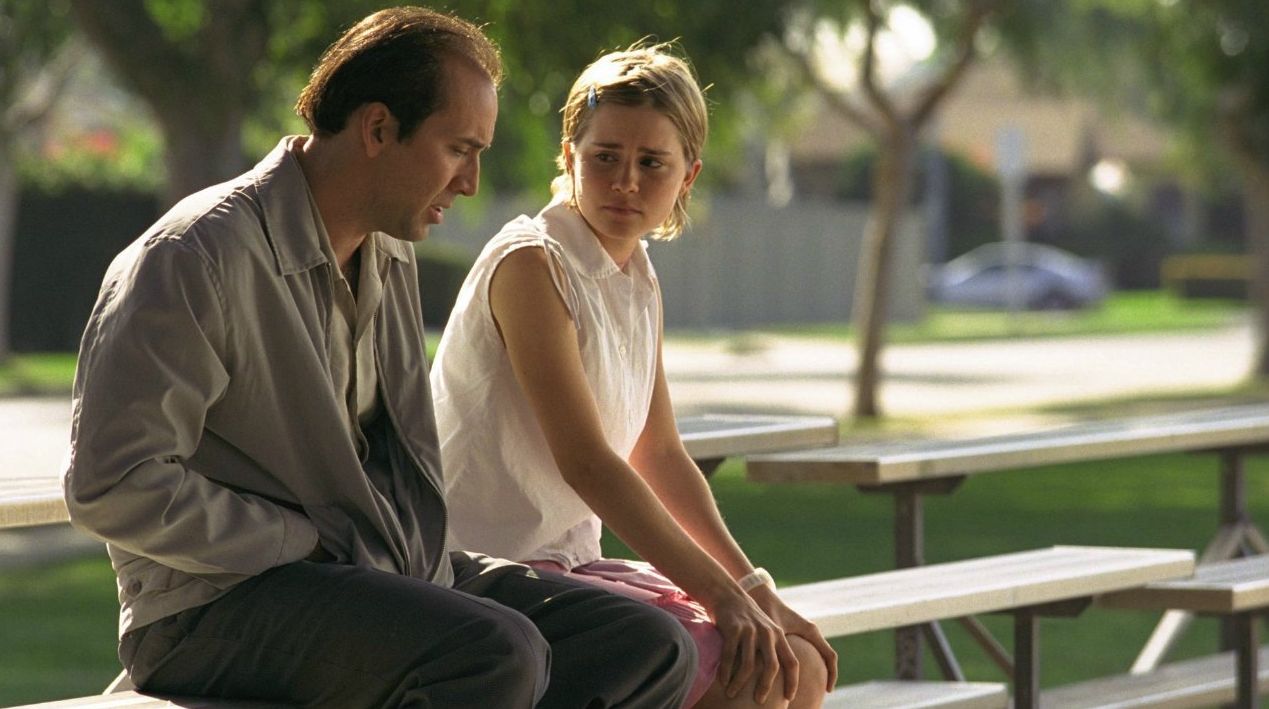
In an unusual departure from the serious Scott-directed pictures, Matchstick Men is a charming, sweet, little caper movie that in no way feels like it was made by the same man that churned out Gladiator just three years prior. Cage is at his best here, alternating between an (at times) insufferable victim of OCD, pacing from room to room, cleaning, cleaning again, locking doors over and over, to the broken and confused father of a daughter he was never informed of. The result of a broken marriage, we come to understand Cage's psychosis to be a physical manifestation of the guilt he endures stealing from others, and less the psychological disorder that comes with the chemically imbalanced. What elevates this psychobabble, is Cage's wonderfully manic performance, and a bevy of talented supporting players like Sam Rockwell and Bruce McGill.
2. The Counselor (2013)
Ah, we arrive at The Counselor. Penned by the an immensely talented Cormac McCarthy, The Counselor tells the story of Michael Fassbender's lawyer, whom, after wrapping himself in with a drug trafficking scheme, watches a world of wealth and power fall apart around him. Boyed by some of the best dialogue you'll hear this side of the Atlantic, a galley of talented performers, and Scott's impeccable visual direction, The Counselor is what I refer to as an underappreciated gem. A movie so good, even the critics didn't seem to get it.
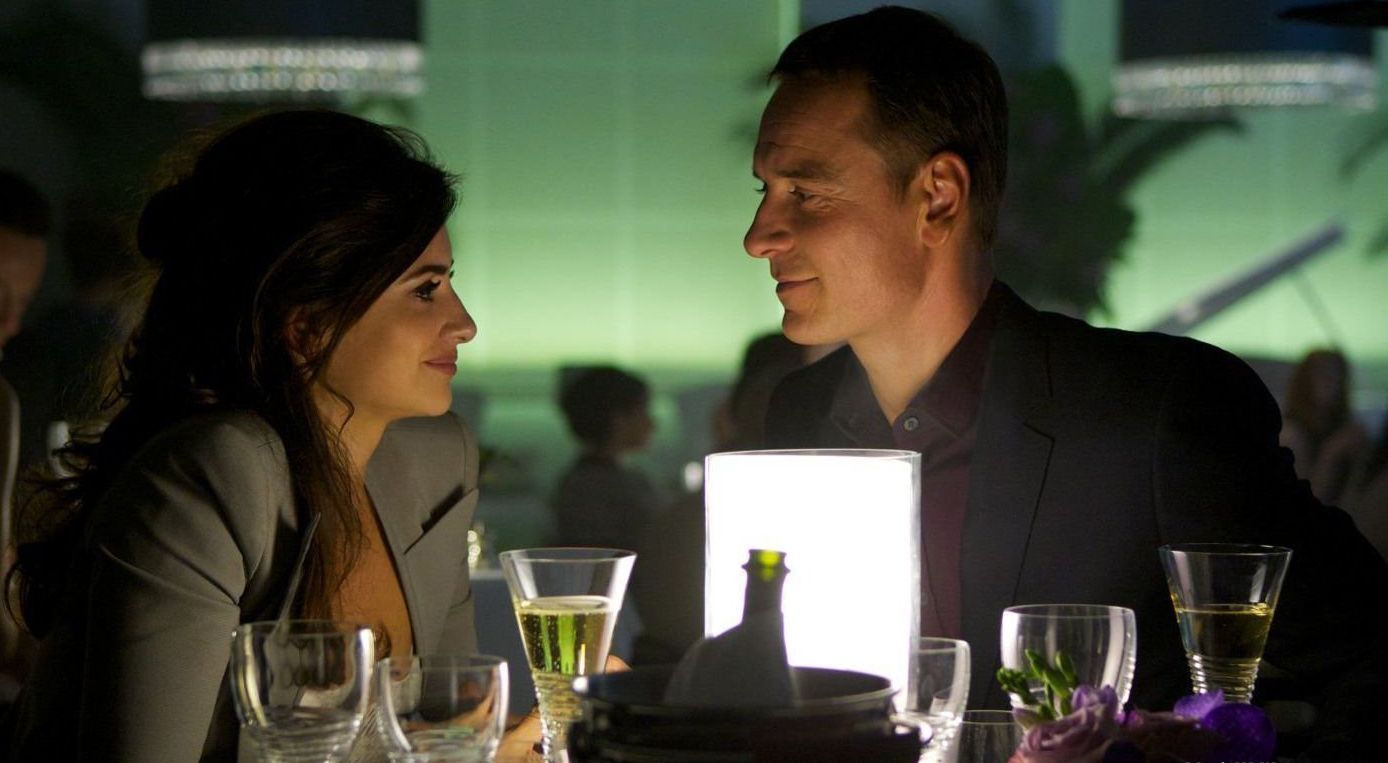
I've often heard this movie being talked about in hushed tones. Usually ones in which the people perpetrating it's supposed awfulness, haven't actually seen the dang thing. When the film was released, much of its marketing material made the movie out to be something it never had any intention of being. We don't expect to hear drug dealers, scumbag lawyers and sociopathic kingpins espousing the nature of humanity and it's unpredictable follies. What we typically get in these kinds of movies is just the right amount of dialogue to push us forward to another grizzly set piece. What sets The Counselor apart from these other films is its insistence on the metaphysical. Much of the storytelling here is done in long, rousing and often profound scenes of dialogue. Not action. Intercut these scenes with the sociopolitical commentary, via a parallel narrative, in which we watch the attempted transportation of drugs across United States borders, and we're really onto something. There is a beautiful balancing act going on between the reality of our "war on drugs" and the existential, almost Sartre-like, absurdity of hitmen discussing life's big questions in the shadows of corporations and capitalism. What could be easy to scoff at, ends up becoming something so audacious, that even movie fans seem to have missed the point. The Counselor is a somber and emotional little movie, but if you avoided this in 2013 because of the poor reviews, go back and take a look. You may find yourself in floods of tears, cheering "Bravo McCarthy and Scott, you magnificent bastards, you've really done it with this one." Just be prepared to endure McCarthy and Scott's nihilistic vision of the world, and the pitiless creatures we crush under our capitalistic, manifest destiny excused greed.
1. Black Rain (1989)
Quite possibly my favorite Ridley Scott movie, and one that seems to have been all but forgotten in those cinematic cornerstones we call historians, Black Rain is part buddy-cop movie, part lost in translation, and part neo-noir. Michael Douglas and Andy Garcia play cops, who after arresting a member of the Yakuza crime syndicate, are asked to transport the criminal back to Japan. But, once they've arrived, nothing goes as expected, and the two find themselves being dragged further into the Japanese underworld. Though it was nominated for two Academy Awards in 1989, both were in technical categories (deserved but not unexpected), Rain seems to be a distant memory for most movie going attendees.
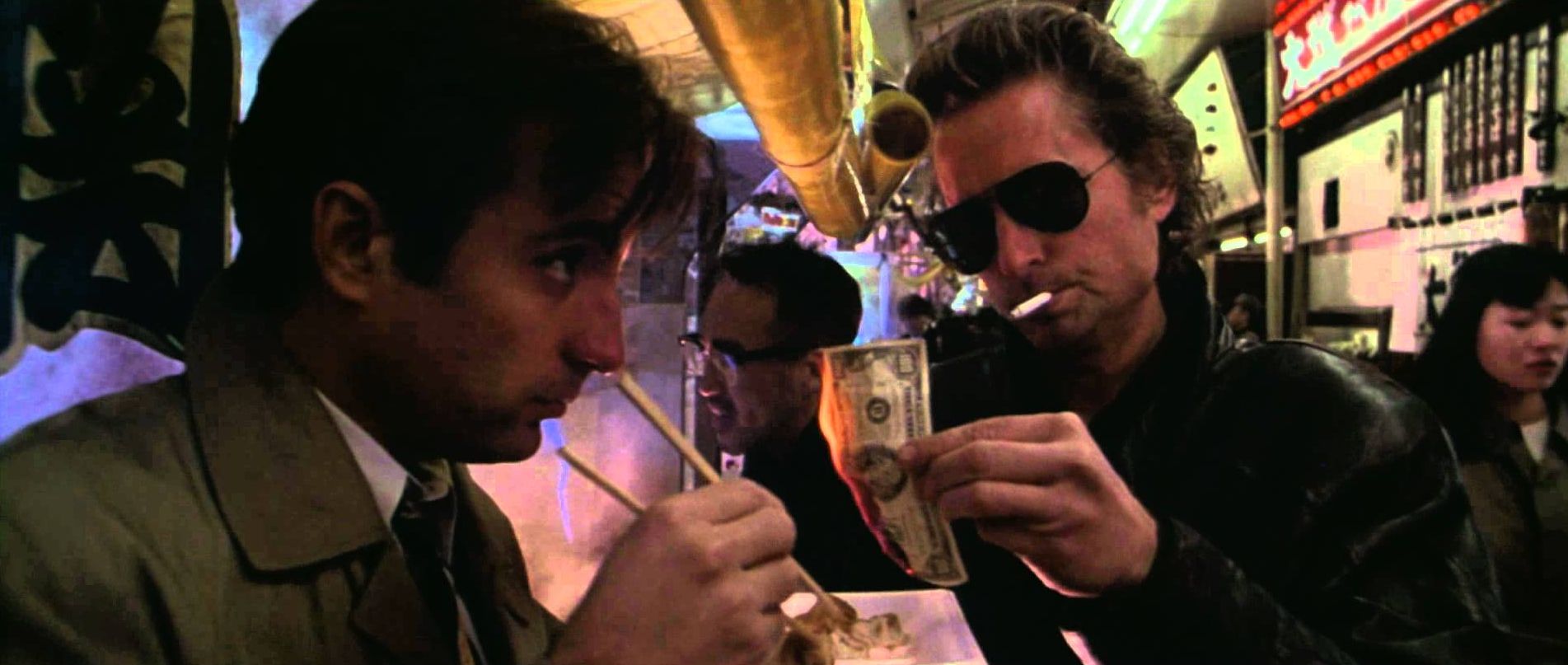
Black Rain, at least stylistically, may remind some of us of Blade Runner, but what really let's Rain shine is Ridley Scott's choices behind the camera. Having cinematography giant Jan De Bont as a director of photography, a perfectly (sleazy) neon-lit Japan, and a strong Michael Douglas performance as the flawed, cold-hearted, if ultimately trustworthy cop, elevate your standard genre cliches. Then there's the mixing of East and West, the old and the new. While in Japan, Garcia and Douglas are assigned a by-the-book Japanese cop to escort them around. In doing so, Scott sets the stage for an inevitable clashing of cultures and ideals, and while I doubt the story does anything you haven't seen handled before in other movies, it does it with such efficiency and tact, it's hard to deny its cumulative power when the finale does roll around. Besides, there's something inherently cool about the use of samurai swords and motorcycles (as horses). Rain isn't likely to change anyone's life, but it will certainly give you reason to cheer and in the doldrums of the pre-Oscar movie season, what else could you ask for?
What is your favorite Ridley Scott movie? Do you disagree with my choices? Feel free to Tweet or comment your responses. I look forward to interacting with more of you as I continue releasing similarly themed lists, and reviews. Thanks everyone.
